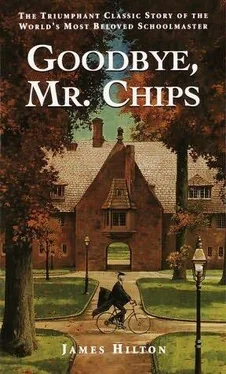And Kathie broadened his views and opinions, also, giving him an outlook far beyond the roofs and turrets of Brookfield, so that he saw his country as something deep and gracious to which Brookfield was but one of many feeding streams. She had a cleverer brain than his, and he could not confuse her ideas even if and when he disagreed with them; he remained, for instance, a Conservative in politics, despite all her radical-socialist talk. But even where he did not accept, he absorbed; her young idealism worked upon his maturity to produce an amalgam very gentle and wise.
Sometimes she persuaded him completely. Brookfield, for example, ran a mission in East London, to which boys and parents contributed generously with money but rarely with personal contact. It was Katherine who suggested that a team from the mission should come up to Brookfield and play one of the School's elevens at soccer. The idea was so revolutionary that from anyone but Katherine it could not have survived its first frosty reception. To introduce a group of slum boys to the serene pleasaunces of better-class youngsters seemed at first a wanton stirring of all kinds of things that had better be left untouched. The whole staff was against it, and the School, if its opinion could have been taken, was probably against it too. Everyone was certain that the East End lads would be hooligans, or else that they would be made to feel uncomfortable; anyhow, there would be "incidents," and everyone would he confused and upset. Yet Katherine persisted.
"Chips," she said, "they're wrong, you know, and I'm right. I'm looking ahead to the future, they and you are looking back to the past. England isn't always going to be divided into officers and 'other ranks.' And those Poplar boys are just as important—to England—as Brookfield is.
You've got to have them here, Chips. You can't satisfy your conscience by writing a check for a few guineas and keeping them at arm's length. Besides, they're proud of Brookfield—just as you are. Years hence, maybe, boys of that sort will be coming here—a few of them, at any rate. Why not? Why ever not? Chips, dear, remember this is eighteen-ninety-seven—not sixty-seven, when you were up at Cambridge. You got your ideas well stuck in those days, and good ideas they were too, a lot of them. But a few—just a few, Chips—want unsticking..."
Rather to her surprise, he gave way and suddenly became a keen advocate of the proposal, and the volte-face was so complete that the authorities were taken unawares and found themselves consenting to the dangerous experiment. The boys from Poplar arrived at Brookfield one Saturday afternoon, played soccer with the School's second team, were honourably defeated by seven goals to five, and later had high tea with the School team in the Dining Hall. They then met the Head and were shown over the School, and Chips saw them off at the railway station in the evening. Everything had passed without the slightest hitch of any kind, and it was clear that the visitors were taking away with them as fine an impression as they had left behind.
They took back with them also the memory of a charming woman who had met them and talked to them; for once, years later, during the War, a private stationed at a big military camp near Brookfield called on Chips and said he had been one of that first visiting team. Chips gave him tea and chatted with him, till at length, shaking hands, the man said: "And 'ow's the missus, sir? I remember her very well."
"Do you?" Chips answered, eagerly. "Do you remember her?"
"Rather. I should think anyone would."
And Chips replied: "They don't, you know. At least, not here. Boys come and go; new faces all the time; memories don't last. Even masters don't stay forever. Since last year—when old Gribble retired—he's—um—the School butler—there hasn't been anyone here who ever saw my wife. She died, you know, less than a year after your visit. In ninety-eight."
"I'm real sorry to 'ear that, sir. There's two or three o' my pals, anyhow, who remember 'er clear as anything, though we did only see 'er that wunst. Yes, we remember 'er, all right."
"I'm very glad... That was a grand day we all had—and a fine game, too."
"One o' the best days aht I ever 'ad in me life. Wish it was then and not nah—straight, I do. I'm off to Frawnce to-morrer."
A month or so later Chips heard that he had been killed at Passchendaele.
7
And so it stood, a warm and vivid patch in his life, casting a radiance that glowed in a thousand recollections. Twilight at Mrs. Wickett's, when the School bell clanged for call-over, brought them back to him in a cloud—Katherine scampering along the stone corridors, laughing beside him at some "howler" in an essay he was marking, taking the cello part in a Mozart trio for the School concert, her creamy arm sweeping over the brown sheen of the instrument. She had been a good player and a fine musician. And Katherine furred and muffed for the December house matches, Katherine at the Garden Party that followed Speech Day Prize-giving, Katherine tendering her advice in any little problem that arose. Good advice, too—which he did not always take, but which always influenced him.
"Chips, dear, I'd let them off if I were you. After all, it's nothing very serious."
"I know. I'd like to let them off, but if I do I'm afraid they'll do it again."
"Try telling them that, frankly, and give them the chance."
"I might."
And there were other things, occasionally, that were serious.
"You know, Chips, having all these hundreds of boys cooped up here is really an unnatural arrangement, when you come to think about it. So that when anything does occur that oughtn't to, don't you think it's a bit unfair to come down on them as if it were their own fault for being here?"
"Don't know about that, Kathie, but I do know that for everybody's sake we have to be pretty strict about this sort of thing. One black sheep can contaminate others."
"After he himself has been contaminated to begin with. After all, that's what probably did happen, isn't it?"
"Maybe. We can't help it. Anyhow, I believe Brookfield is better than a lot of other schools. All the more reason to keep it so."
"But this boy, Chips... you're going to sack him?"
"The Head probably will, when I tell him."
"And you're going to tell the Head?"
"It's a duty, I'm afraid."
"Couldn't you think about it a bit... talk to the boy again... find out how it began... After all—apart from this business—isn't he rather a nice boy?"
"Oh, he's all right."
"Then, Chips dear, don't you think there ought to be some other way..."
And so on. About once in ten times he was adamant and wouldn't be persuaded. In about half of these exceptional cases he afterward rather wished he had taken her advice. And years later, whenever he had trouble with a boy, he was always at the mercy of a softening wave of reminiscence; the boy would stand there, waiting to be told his punishment, and would see, if he were observant, the brown eyes twinkle into a shine that told him all was well. But he did not guess that at such a moment Chips was remembering something that had happened long before he was born; that Chips was thinking: Young ruffian, I'm hanged if I can think of any reason to let him off, but I'll bet she would have done!
But she had not always pleaded for leniency. On rather rare occasions she urged severity where Chips was inclined to be forgiving. "I don't like his type, Chips. He's too cocksure of himself. If he's looking for trouble I should certainly let him have it."
What a host of little incidents, all deep-buried in the past—problems that had once been urgent, arguments that had once been keen, anecdotes that were funny only because one remembered the fun. Did any emotion really matter when the last trace of it had vanished from human memory; and if that were so, what a crowd of emotions clung to him as to their last home before annihilation! He must be kind to them, must treasure them in his mind before their long sleep. That affair of Archer's resignation, for instance—a queer business, that was. And that affair about the rat that Dunster put in the organ loft while old Ogilvie was taking choir practice. Ogilvie was dead and Dunster drowned at Jutland; of others who had witnessed or heard of the incident, probably most had forgotten. And it had been like that, with other incidents, for centuries. He had a sudden vision of thousands and thousands of boys, from the age of Elizabeth onward; dynasty upon dynasty of masters; long epochs of Brookfield history that had left not even a ghostly record. Who knew why the old fifth-form room was called "the Pit"? There was probably a reason, to begin with; but it had since been lost—lost like the lost books of Livy. And what happened at Brookfield when Cromwell fought at Naseby, near by? How did Brookfield react to the great scare of the "Forty-Five"? Was there a whole holiday when news came of Waterloo? And so on, up to the earliest time that he himself could remember—1870, and Wetherby saying, by way of small talk after their first and only interview: "Looks as if we shall have to settle with the Prussians ourselves one of these fine days, eh?"
Читать дальше











